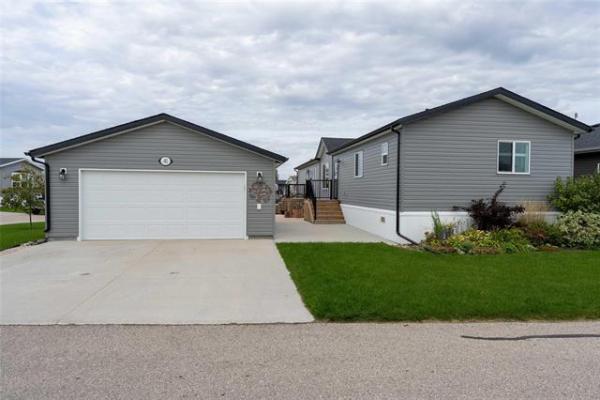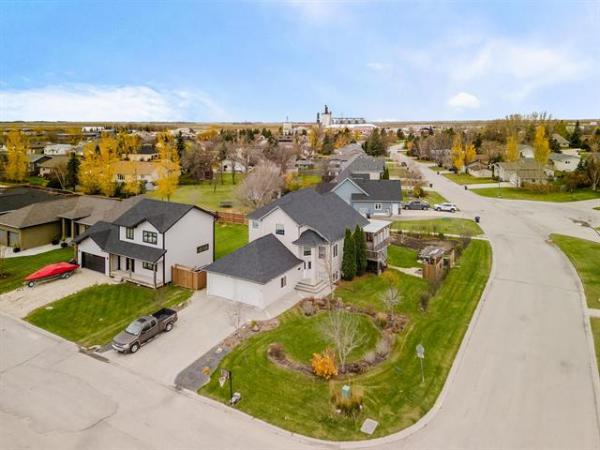Whether it's to purchase an empty lot to build just one home to sell or to buy a large tract of land, intending to sell when developers come calling, an investor needs cash, experts say.
"It's not for the faint-hearted," says real estate consultant Wayne Penner, an agent for Royal LePage Dynamic.
"It can be a lot of fun. It can be rewarding, but you have to have a strong stomach."
A novice real estate investor has three different options when considering investing in undeveloped land: Large-scale development, small-scale development and speculation -- sitting on the land and selling when it goes up in price.
Buying a large tract of land to develop commercial real estate, several homes or a condominium project is amongst the most costly, requiring experience, and often presents the most headaches.
"The problem is with all the red tape and things that go with trying to develop it within the city," Penner says.
"You have to have it rezoned. You're going to have to have an extensive plan. You're going to have public hearings. You're going to be fighting with residents in the area who may not want the project there because all they've seen is grass, meadow and trees."
On average, a developer will spend more than a year of planning, negotiating and ensuring all the zoning and permits are in place before even a shovel touches the ground.
"On top of that, what are the construction costs, and what are servicing costs? This is a full-time job," says Penner, who has 35 years of experience in the Winnipeg market, and is currently working with one client who is a novice developer.
"If you bought the land, of course, time is ticking and interest rates are OK, but the bank needs to be fed."
For most average, middle-class Winnipeggers, developing land on a large scale is simply beyond their financial means, says Gerry Campbell, executive vice-president of sales and service with the Assiniboine Credit Union.
Often millions of dollars are involved even for the smallest condominium project.
"That's risky. It takes a fair bit of resources," he says, adding he does not see many clients engaging in this sort of real estate venture.
"They have to have a lot of financial resources behind them if they're looking for a larger tract of land."
On top of that, a would-be developer may be on the hook for infrastructure.
"There has to be the sewer, the water, the road, the hydro. That's a big capital investment. So, do they have wherewithal behind them to take that sort of thing on?"
Mortgage broker for Invis Rosa Bovino says most lenders would want anything from 35 to 50 per as a down payment from the buyer in order to finance the venture.
"We have several clients looking to purchase land, some to be subdivided and sold," she says.
"A lot of people don't have they means of coming up with that kind of money."
For the novice, Campbell suggests starting out small.
"Let's say I wanted to buy a vacant lot on the street that I already live on, and just want to put a house on it and sell it to someone else, what we would need is 35 per cent cash into it," he said, adding one way to fund the down payment would be to use the equity built up in your home.
Though it can work, and become the first step onto bigger and better projects, it also has real risks. It can take time to build the home, which means during that period, the developer must carry the cost of both the mortgage's and line of credit's interest payments. Property taxes are another expense, and construction costs in a tight market for both supplies and labour are perhaps and even bigger concern.
The builder must also find a buyer. Although the market is hot now, it may not be a year from now.
The stakes are high: The builder's own home is on the line, Campbell says about using home equity to back the project.
"We would likely put what we call a caveat against the house -- kind of a lien against it -- so that we would be covered if they were unable to repay," he says.
"If they couldn't pay, we could force them to sell the house to recover our funds that way."
As risky as that may seem, it pales in comparison to real estate speculation.
"Speculation is the most volatile aspect of real estate investment," says Sandy Shindleman, president of the commercial real estate company, Shindico.
"There's no income stream and, typically, to bring the property to an income stream potential, either you have to make a substantial additional investment, or you need to sell it."
Shindleman, whose company does provide consultation services to people looking to purchase and develop land for commercial use, says many people have bought land in the past 60 years on the edge of Winnipeg, hoping to sell it when developers came calling but, instead, found little success.
A buyer must also know that speculation takes time and patience. More often than not, it involves holding on to the land for 10 to 20 years.
"You have to be able to understand what is in the immediate path of development, and what political issues at the municipal or provincial level might impede the development of the property."
It also requires a good grasp of regional economics. The job market ultimately will drive development. The more jobs available in a community, the greater the need for housing and services associated with the growth of new communities.
"It's not the first thing they should try," he says, adding speculation does have one advantage over other forms of real estate investment.
"It's certainly easy to manage if there's no rent and no tenants. It's simply a matter of cutting the grass and making sure you have liability insurance."
Above all, as with all forms of real estate investment, the novice should seek advice. Talk to a banker, mortgage broker, the city's planning and development department and real estate consultant before spending any money at all.
"You have to have your eyes open when you go in because there's always that chance that things could change," Campbell says.
"Can you accept the consequences or ride it out if the market has a change of pace?"
Quick tips
for investing
in bare land
Start out small: Buying one lot for single-family use is often all that the average investor can afford and should be willing to risk.
Experience needed: If you don't have it yourself, seek it out before spending any money. Real estate agents, your bank or credit union, the City of Winnipeg, mortgage lenders and even developers are valuable sources of information.
Greater profits mean higher risks: Investing in undeveloped property is the riskiest of all real estate ventures. It's also costly. Ensure beforehand you are aware of what you stand to lose if it doesn't work out as planned. The bigger the investment means the more you stand to make, but you also stand to lose more -- if not everything.



